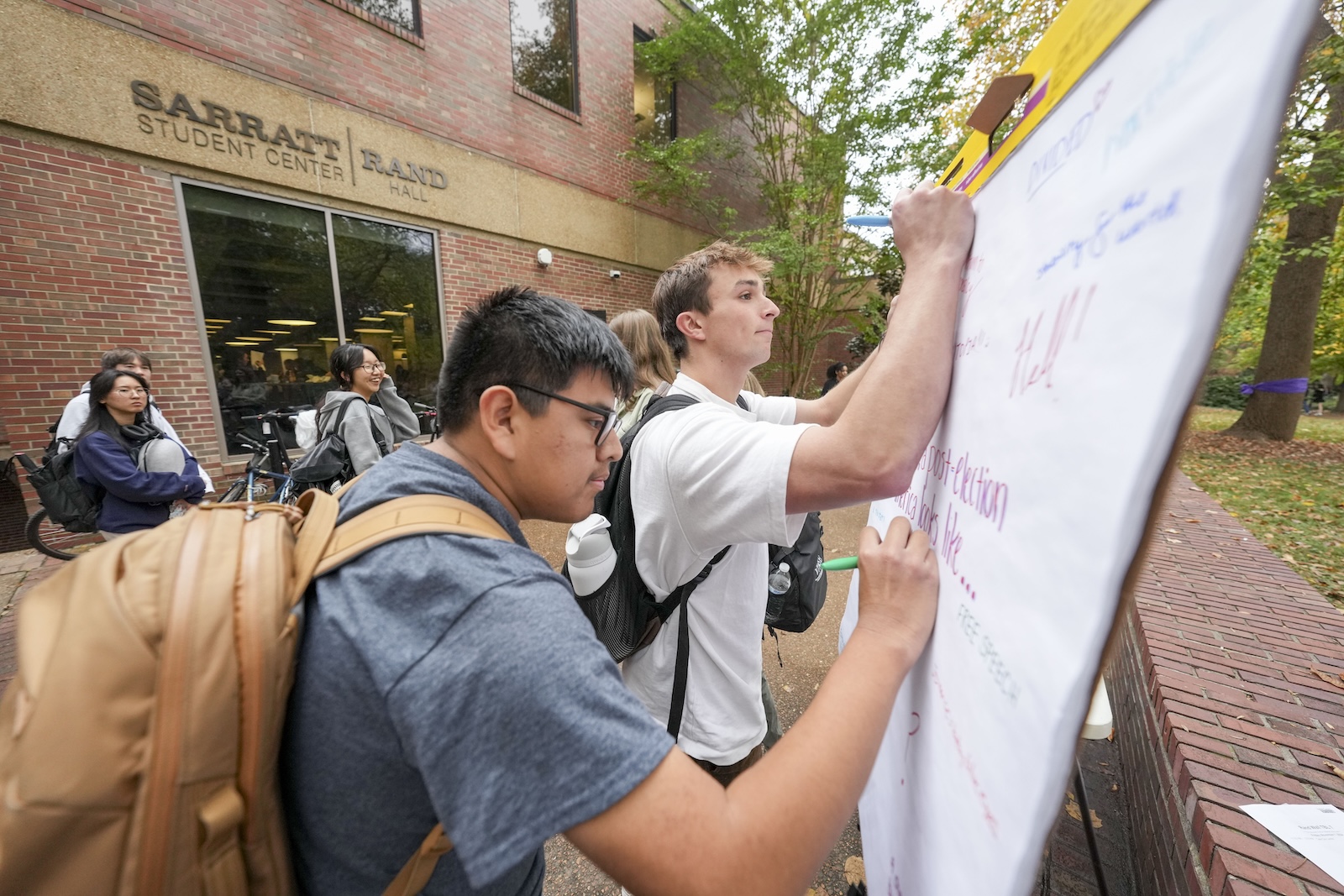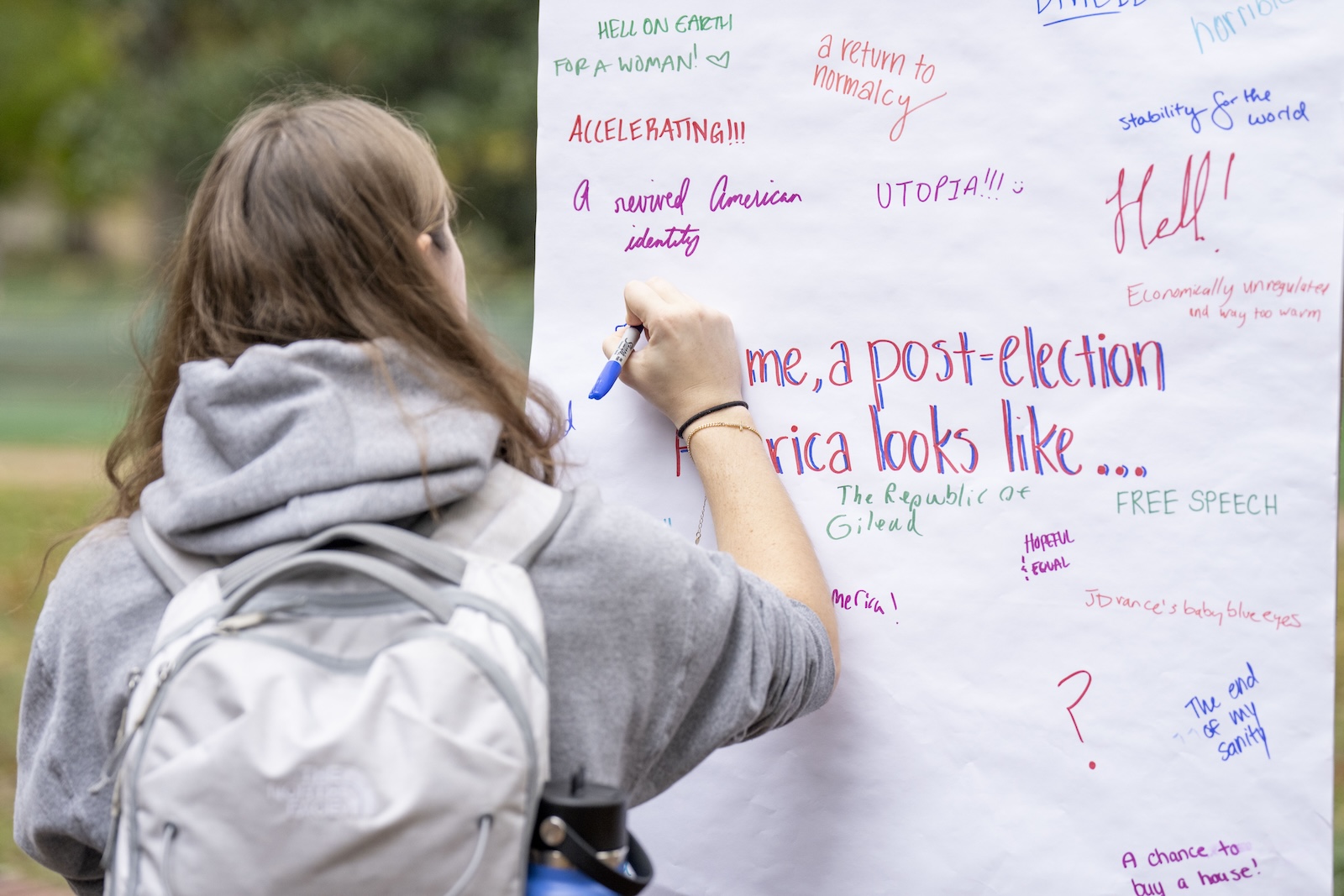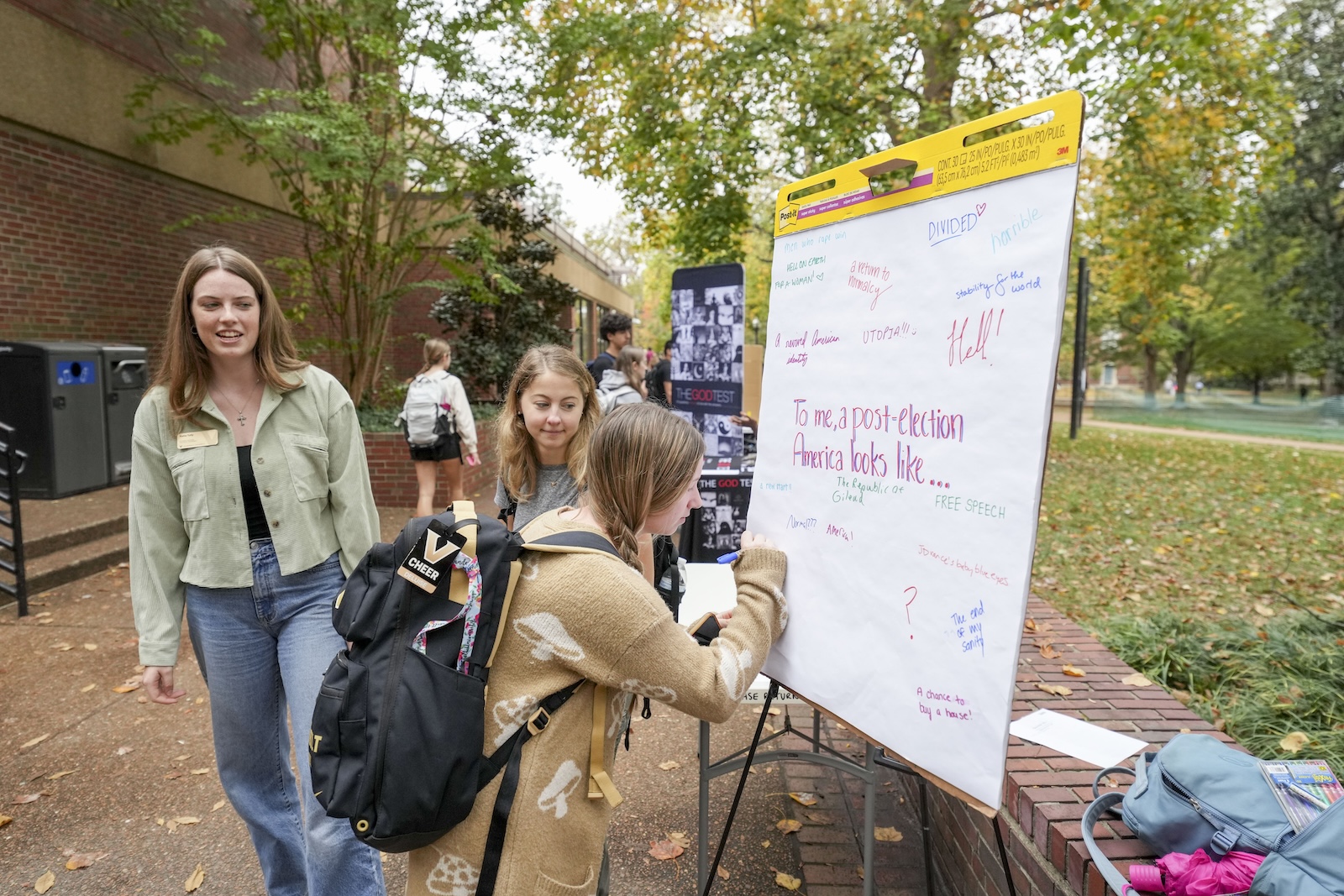In the hours after the 2024 presidential election’s polls closed, the Dialogue Vanderbilt Student Advisory Board—more than 38 students with diverse backgrounds and ideological perspectives—started brainstorming ways for students to voice their reactions. Their idea: to make those varied reactions visible by putting pen to paper.
Or more precisely, putting brightly colored Sharpies to posterboard.

On Nov. 7 and Nov. 8, students gathered outside Rand Dining Hall to write down their insights about what a post-election world looks like. Katie Tully, a second-year student and returning member of the Dialogue Vanderbilt Student Advisory Board, wanted to take advantage of the mood on campus to hone the skills she’d learned through Dialogue Vanderbilt.
“I wanted to give us the chance to practice engaging with various outlooks so that we can be better moderators and examples in our work and everyday lives,” Tully said. “There were a wide variety of responses to the board, some people just wanted to read others’ thoughts, some eventually came around to writing something even if it was simply a question mark, while others readily jumped on the chance to write exactly how they felt.”
Alexandra Biddle, a second-year student participating in the Dialogue Vanderbilt tabling sessions, felt drawn to seek common ground within the campus community after the election. Watching participants write out their thoughts showed her the importance of civil connection.
“It’s easy to look around and see a divided world, but I think if we’re willing to look a little deeper, there is unity being sought,” Biddle said. “Watching people who were angry, excited, saddened, confused, fearful and everything in between write down their thoughts—and find genuine solace in being able to express these feelings and thoughts in a tangible way, for possibly the first time—highlighted to me why having difficult conversations is critical.”

In addition to the activity outside Rand Dining Hall, the Dialogue Vanderbilt Student Advisory Board came together for breakfast and conversation on Nov. 8. Their intention was to live the values they promote—among them, free expression and civil discourse— and learn from the dialogue themselves.
The students broke up into groups of three or four to discuss several questions: What do people assume about your political beliefs, and what do you wish they knew? What is something you’ve struggled with this election season? What do you think the world will look like following this election?
“My group really took the opportunity to not only be honest when answering the prompt questions but also to build off one another and ask questions to better understand,” Tully said. “I learned that Dialogue Vanderbilt truly has a path toward creating cultural change in which discussing and interacting with difficult topics in a productive way is the norm rather than the exception.”
